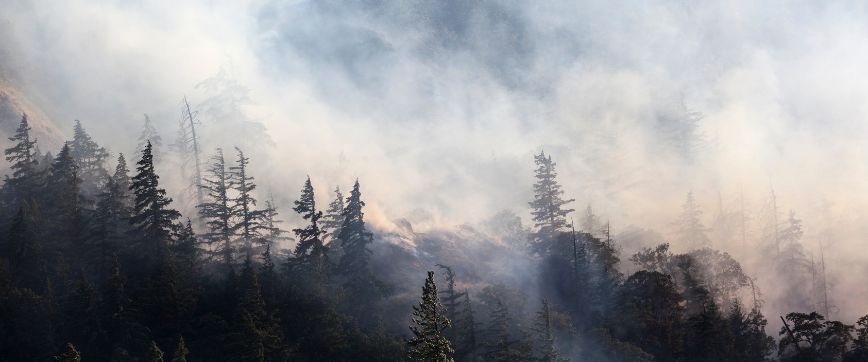Monday, August 21, 2023 – Several Regions of Vancouver Island, including Sooke, are being impacted OR are likely to be impacted by wildfire smoke over the next 24-48 hours. While skies are relatively clear in Sooke right now, conditions may change. Residents are encouraged to inform themselves about steps they can take should smoky conditions be present.
In a “Smoky Skies bulletin” the Government of BC shares, “Smoke on Vancouver Island will be variable due to terrain and local winds.”
Be Informed
During a wildfire, smoke conditions can change quickly over short distances and can vary considerably hour-by-hour. Wildfire smoke is a natural part of our environment but it is important to be mindful that exposure to smoke may affect your health. People with pre-existing health conditions, respiratory infections such as COVID-19, older adults, pregnant women and infants, children, and sensitive individuals are more likely to experience health effects from smoke exposure.
During smoky conditions
- Stop or reduce your activity level if breathing becomes uncomfortable or you feel unwell
- Stay cool and drink plenty of fluids.
- If you have asthma or other chronic illness, carry any rescue (fast-acting) medications with you at all times and activate your personal care plan that has been designed with your family physician
- Make sure that children and others who cannot care for themselves follow the same advice.
Monitor Symptoms
- People respond differently to smoke. Mild irritation and discomfort are common, and usually disappear when the smoke clears.
- If you are unsure whether you need medical care, call HealthLink BC at 8-1-1.
- If you are experiencing difficulty in breathing, chest pain or discomfort, or a severe cough, contact your health care provider, walk-in clinic, or emergency department. If you are having a medical emergency, call 9-1-1.
Tips to reduce your smoke exposure
- Smoke levels may be lower indoors but will still be elevated, so stay aware of your symptoms even when you are indoors.
- Running a commercially available HEPA (high efficiency particulate air) filter can improve indoor air quality in the room where the device is located.
- If you have a forced air heating/cooling system in your home, it may help to change the filter and set the fan to run continuously.
- Reduce indoor air pollution sources such as smoking, burning incense, and frying foods.
- If travelling in a car with air conditioning, keep the windows up and the ventilation set to recirculate.
- If you are very sensitive to smoke, consider moving to another location with cleaner air, but be aware that conditions can change rapidly.
- Maintaining good overall health is a good way to prevent health effects resulting from short-term exposure to air pollution.
More information
Air Quality Data
- Air Quality Health Index: https://www.gov.bc.ca/airqualityhealthindex
- Air Quality Map: https://www.gov.bc.ca/airqualitymap
Smoke forecasts (next 48 hours)
- Environment and Climate Change Canada FireWork prediction system: https://weather.gc.ca/firework/index e.html
- Blue Sky Canada Smoke Forecasting System: https://firesmoke.ca/forecasts/current
For additional general information about wildfire smoke and your health:
BC Centre for Disease Control
- Wildfire smoke and your health: http://www.bccdc.ca/health-info/prevention-public-health/wildfire-smoke
- Wildfire smoke and COVID-19: http://www.bccdc.ca/health-info/diseases-conditions/covid-19/prevention-risks/wildfires
Provincial Health Authorities
- Vancouver Island Health Authority: Wildfires | Island Health
HealthLink BC
- Wildfires and your health: https://www.healthlinkbc.ca/health-feature/wildfires
- Phone 8-1-1 (toll free, 24 hours a day, 7 days a week)
Worksafe BC
- For information about working outdoors during smoky conditions, see the wildfire FAQ
website: https://www.worksafebc.com/en/resources/health-safety/information-sheets/wildfire-smoke-frequently-asked-questions-faq.
